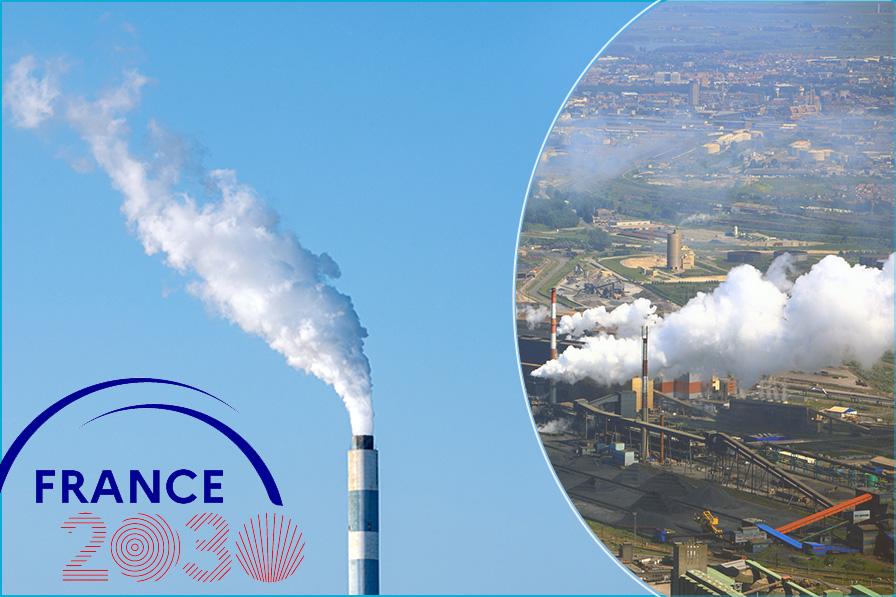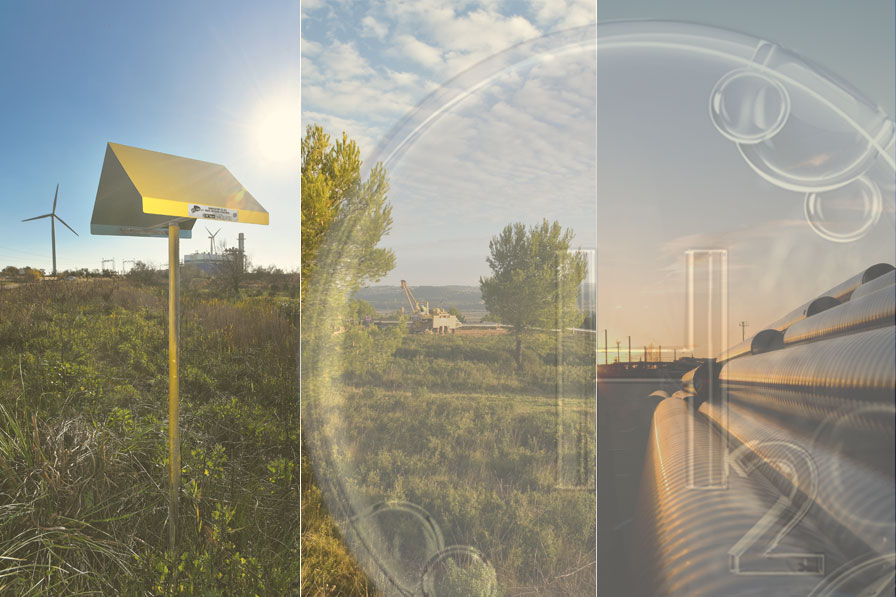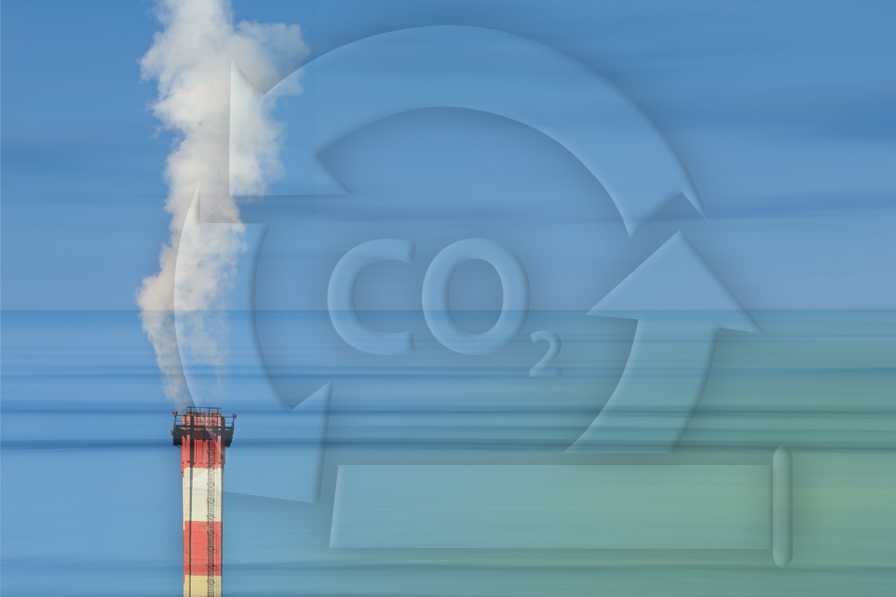GRTgaz fully engaged in the ZIBaCs

Since 2023, ZIBaCs have become a common noun in the vocabulary of industrial decarbonisation. But just what are these "Low Carbon Industrial Zones" and how is GRTgaz contributing to these new collective territorial dynamics?
Led by the French Environment and Energy Management Agency (ADEME), the "Low Carbon Industrial Zones" (ZIBaC) call for projects is part of France 2030, the €54 billion, 5-year national investment plan announced in 2021. A new regional planning tool, the ZIBaCs were designed more specifically to meet the target of reducing France's industrial CO2 emissions by 55% by 2030. How? By bringing together industrial players to create synergies within industrial basins, in particular around low-carbon hydrogen (H2), CCUS (capture, recovery of CO2 or geological storage), renewable heat, waste-to-energy and electrification.
The winning clusters receive financial assistance from the Government: initially to carry out studies during the maturation phase (maximum 24 months), and then during the subsequent support phase, which lasts between 5 and 10 years.
“The ZIBaCs’ success lies in getting the main CO₂ emitters in an industrial zone to work together to implement a joint long-term strategy and establish joint governance,"Anne Evrard
Renewable Gas and Hydrogen Project Manager at GRTgaz.
ZIBaC and GRTgaz, a natural fit
“The ZIBaCs’ success lies in getting the main CO2 emitters in an industrial zone to work together to implement a joint long-term strategy and establish joint governance,", observes Anne Evrard, Renewable Gas and Hydrogen Project Manager at GRTgaz.
This shared dynamic is fully in line with that advocated by GRTgaz through its territorial projects for industrial decarbonisation. The company's studies on the creation of future hydrogen or CO2 transport networks fit in perfectly with the ZIBaC projects.
“The ZIBaCs act as accelerators for our future projects, bringing industrial players together around a strategic multi-energy vision,", says Anne Evrard.
Which are the first winning ZIBaCs?
In January 2023, the Minister Delegate for Industry announced the creation of the first two ZIBaCs:
- The Dunkirk industrial port zone. The winning project, DKarbonation, is led by the Euraénergie industrial group. To reduce CO2 emissions by 30% by 2030, the project banks on the production and use of renewable energies, including biomethane and hydrogen. It also aims to speed up electrification in the zone, and the development of the CCUS, alongside initiatives to promote energy efficiency and the circular economy. GRTgaz has chosen to get involved in the collective: the feasibility studies for the "DHUNE" H2 transport project, as well as those relating to the creation of a CO2 transport infrastructure, have been integrated into the ZIBaC.
- The Fos-sur-Mer industrial port zone, around the SYRIUS project (see below).
In April and July 2023, two new ZIBaCs joined the list:
- The industrial port area of the Seine Axis (Le Havre-Rouen). Called Socrate, the project is being run by HAROPA PORT and three industrial associations. GRTgaz is contributing in particular to studies on renewable gases and hydrogen transport infrastructures.
- The Saint-Nazaire industrial port zone. Led by the Association de Décarbonation Loire Estuaire (ADELE), the ZIBaC Loire-Estuaire aims to transform this 28,500-job zone into a “massive decarbonated energy hub”. GRTgaz is extensively involved in the project, with studies on the "GOCO2" CO2 transport infrastructure project », as well as a hydrogen transport network project. Studies on renewable gases and the decarbonisation of mobility, including via CNG, are also being carried out.
And more is yet to come! In 2024, several new ZIBaCs will be officially announced by ADEME.
"SYRIUS has made it possible to mobilise manufacturers around the issue of decarbonisation, well beyond PIICTO's historic area. There will be a before and an after".Franck Vincendon
Business developper chez GRTgaz
A close-up on... The Fos-sur-Mer ZIBAC, an example to follow
At Fos-sur-Mer, ADEME has singled out the SYRIUS (SYnergies Régénératives IndUstrielles Sud) programme. At the helm is the association PIICTO, which unites more than 60 manufacturers and stakeholders. “The association very sympathetically made a place for itself within the local ecosystem and became the sole sponsor to the ZIBaC project. Right from the start, we were able to show a united front," says Franck Vincendon, Business Developer at GRTgaz. PIICTO has succeeded in bringing together the Capenergies competitiveness cluster, the Novachim innovation cluster, the Port of Marseille Fos, the Aix-Marseille Provence metropolitan authority and the South Region, which have become its partners in the ZIBaC.
All in all, during the maturation phase, 28 studies will be co-financed by ADEME. They cover the decarbonisation of logistics, the recovery and recycling of waste into renewable energy, CCUS and hydrogen. GRTgaz is taking part in eight of them, defending a vision centred on the advantages of renewable and low-carbon gas, and on the need for infrastructure. In particular, the future HYnframed low-carbon hydrogen transport network between Fos and Manosque, and the CO2 transport network projects around the Etang de Berre and in the Rhône valley, or the recovery of waste into renewable energy and the adaptation of the corresponding infrastructures.
For Franck Vincendon, the ZIBaC effect has been spectacular: "SYRIUS has made it possible to mobilise manufacturers around the issue of decarbonisation, well beyond PIICTO's historic area. There will be a before and an after".

